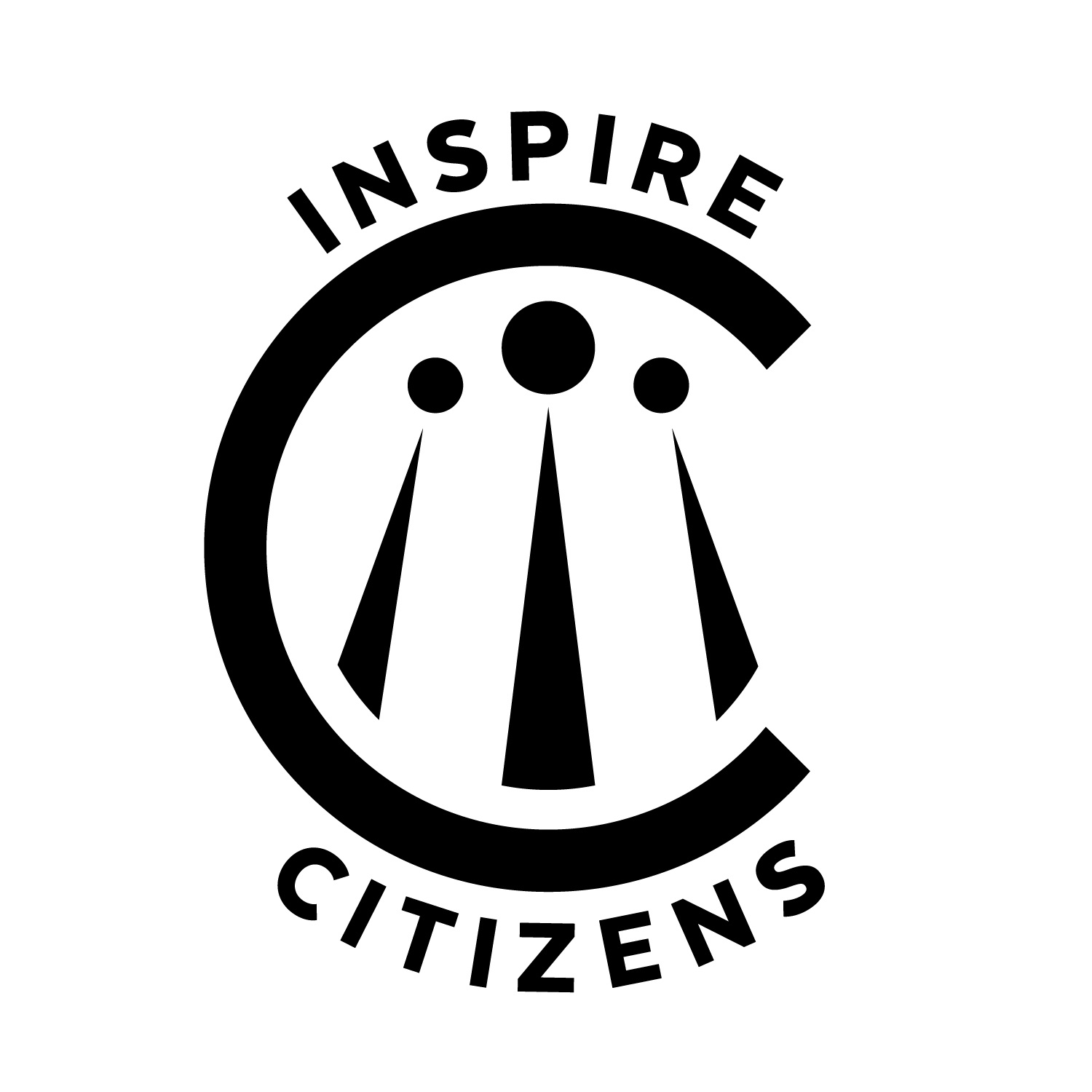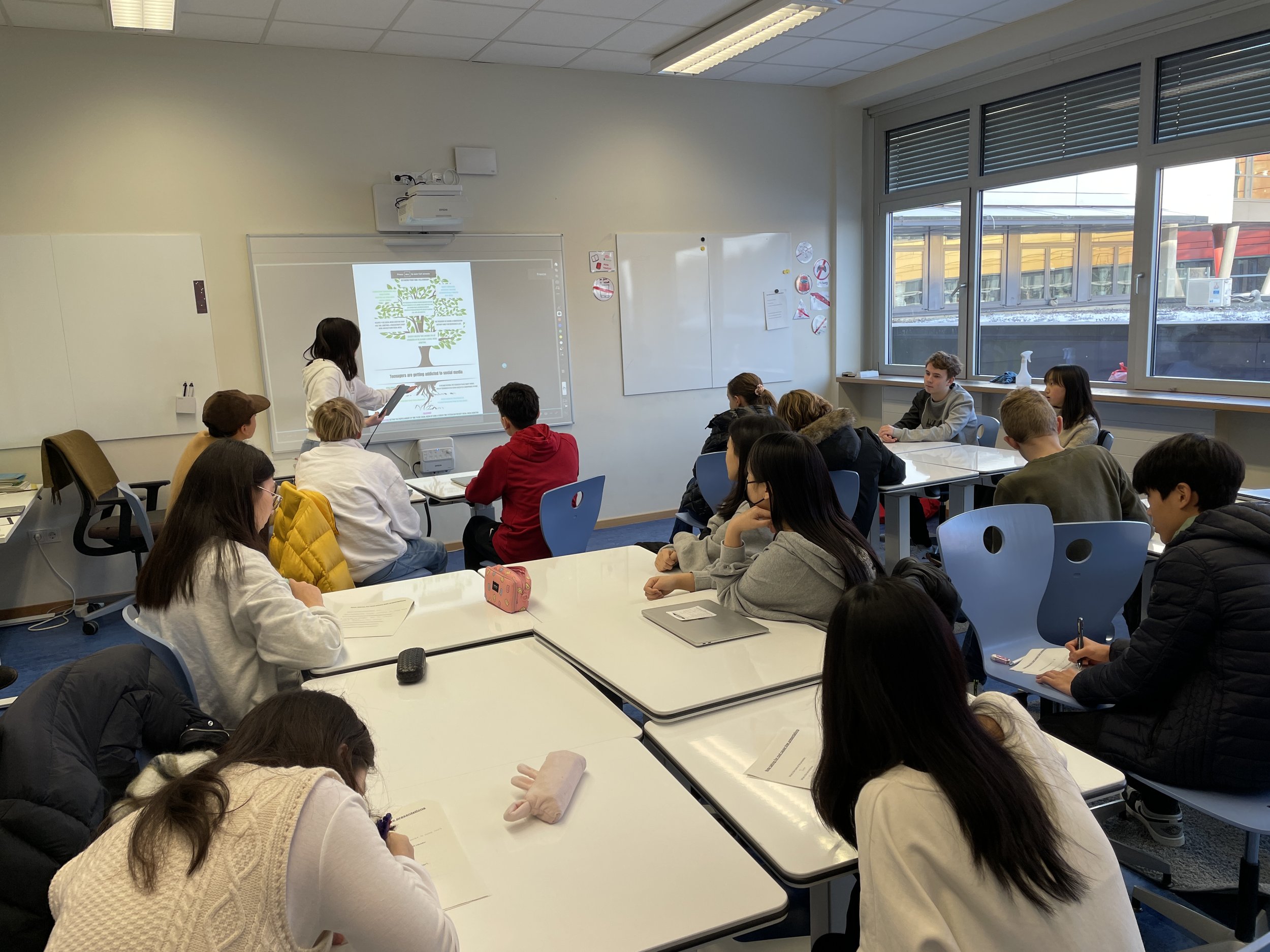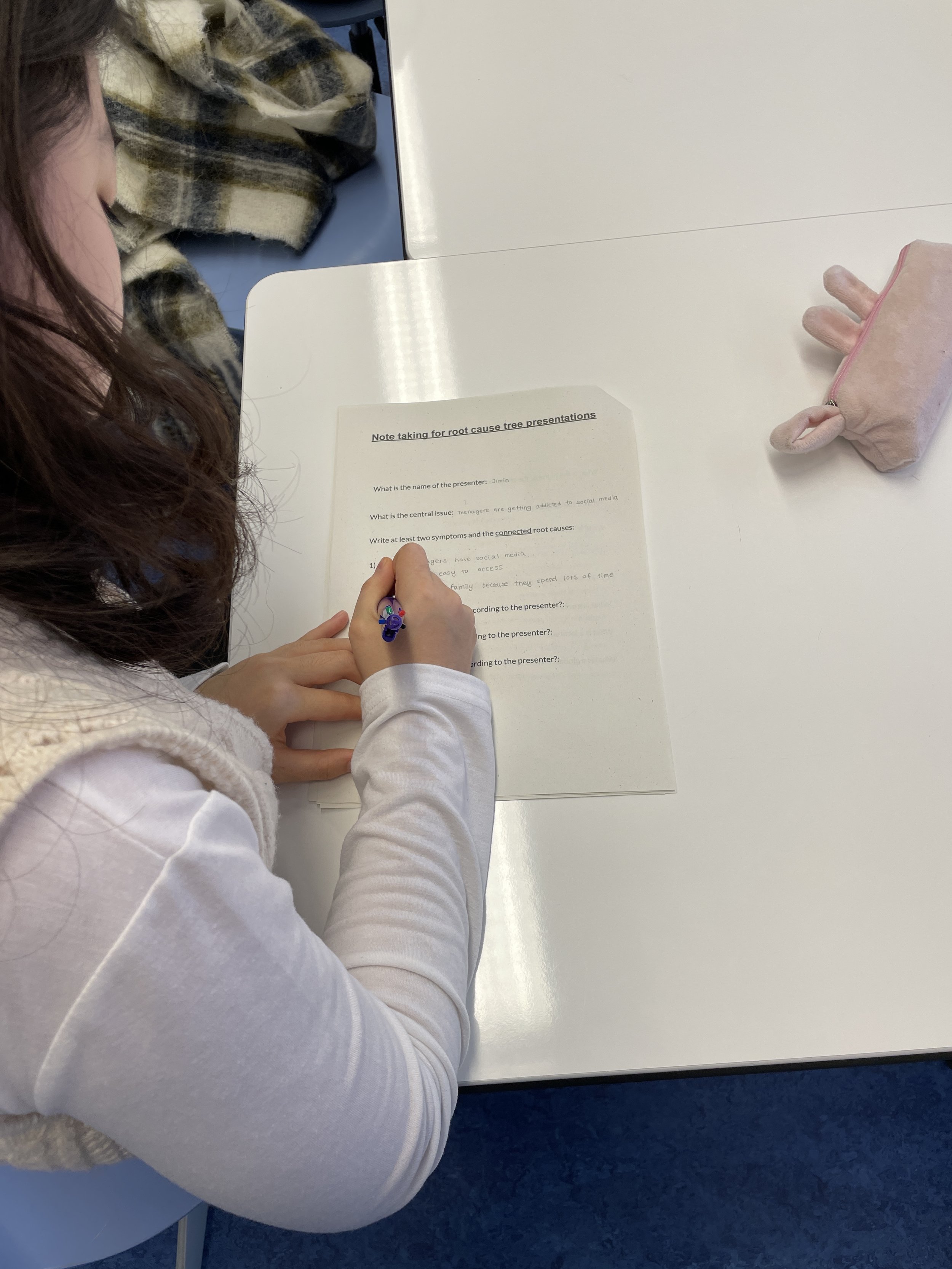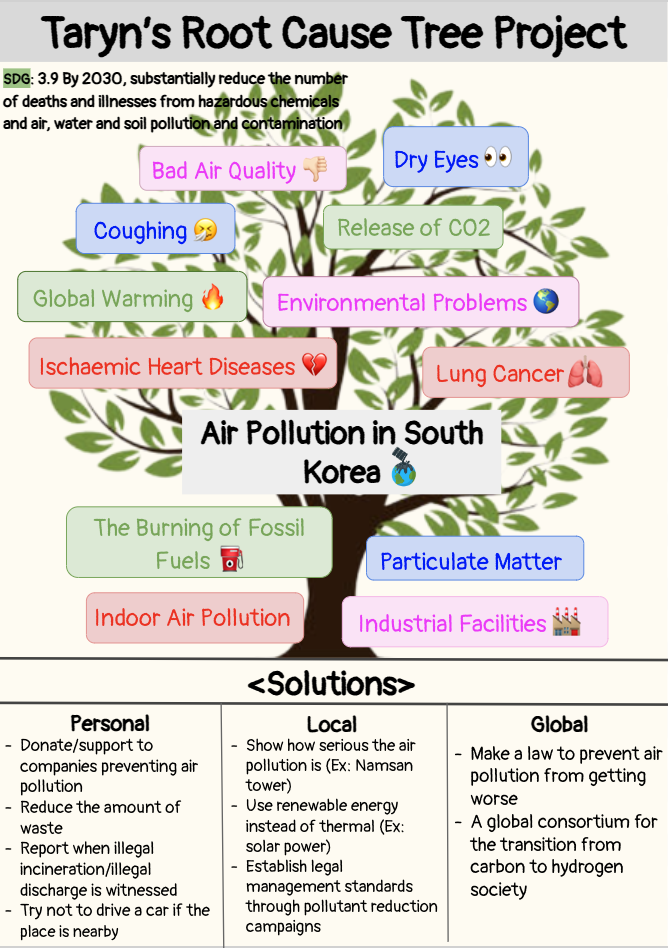Transformative Curriculum Design in 8th grade ELA leads to active global citizenship
8th-grade ELA students at Frankfurt International School learn about how to use the root causes tree in relation to local and global issues.
Two passionate educators from Frankfurt International School (FIS), Mariko Jungnitsch and Mette Sarstedt, have been on a collaborative journey to reshape their 8th-grade English Language Acquisition (ELA) curriculum. Their inspiration was sparked by the Global Citizenship Certificate (GCC) course with Inspire Citizens.
Mariko, a dedicated teacher who joined FIS in 2014, and Mette, the department chair in her fifth year at FIS, were offered the opportunity of co-teaching two sections of ELA in 2022/23. Mariko was taking the GCC during that academic year and was keen to apply the ideas and resources that she was gleaning from the course. Mette was also eager to foster a more active global citizenship approach in the class, and the two teamed up to redesign the 8th-grade ELA experience. They wanted to keep the language outcomes at the centre of the student experience (including public speaking, listening and note-taking) while increasing engagement alongside active global citizenship.
The key unit near the start of the year, called “Overcoming Obstacles”, underwent transformation guided by the Inspire Citizens Empathy to Impact model. Early in the unit, students were exploring cause and effect, and Mariko introduced a video from the GCC featuring a student explaining the root cause tree. This led students to investigate the root causes of a variety of global issues ranging from air pollution in Korea to unemployment in Germany.
Mette reflected on the students' choices, stating, "I was pleased they chose real issues and great topics when they were set free." The intuitive nature of the root cause tree tool impressed her, emphasizing its effectiveness in fostering critical thinking.
The United Nations’ Sustainable Development Goals (SDGs) and systems thinking from Compass Education were brought into the following unit in various ways, along with ideas from the Leadership for Learning series at FIS (a professional development series that allows teachers to learn, share, and set leadership goals four times a year).
"The Leadership for Learning meetings are really nice opportunities to meet others in the school and think outside the box," says Mette.
The Empathy to Impact podcast, featuring a grade 7 student's initiative on toilet twinning, became a catalyst for personal action for Mariko and Mette’s 8th graders. They had students listen to the podcast as a way to practice active listening and engage in note-taking, and then students applied what they had learned to analyze the school's service groups and how each group was aligning action with the SDGs.
Mariko and Mette also introduced articles on diverse global issues, fostering awareness of biases and encouraging students to evaluate content using Compass tools. Mariko envisions this expanding to greater action and impact this year. She says, "One of our reflections when Aaron was here, was to think about having students write an article for the school newspaper next year." This approach would allow the students to become advocates and citizen journalists, sharing their learning with the FIS and wider communities.
In addition to these curricular components, Mariko and Mette invited speakers to their classrooms to bring active global citizenship to life. An Iranian student spoke about her life experiences, and the students were highly engaged in learning from a peer.
“Listening to this student, as well as the student who shared on the podcast, really increased our students’ understanding of global issues,” says Mariko.
Mette emphasizes the importance of relevant curriculum design, stating, "It’s our responsibility to make the curriculum relevant for the kids." This approach and the collaborative effort between Mariko's innovative ideas from Inspire Citizens and Mette's strategic planning have created depth and meaning to the language goals for the 8th-grade ELA students.
“Throughout our revised units, students worked on listening and note-taking skills, and on growing mindsets about interconnectedness,” explains Mariko.
As they reflect on their experience, the duo plans to refine the curriculum further. This year, 2023/24, Mariko is teaching the 8th grade ELA class while Mette is teaching another ELA grade level and introducing active global citizenship components to that curriculum, as well.
"Now I’m constantly thinking of how to make the curriculum more impactful," reflects Mette.
As FIS continues to hone its multi-layered approaches to active global citizenship in the curriculum, this is an excellent example of how teacher engagement in curriculum design can impact student learning and action in deep ways.
Below: Students working on applying the root cause tree activity to analyze a variety of local issues.



